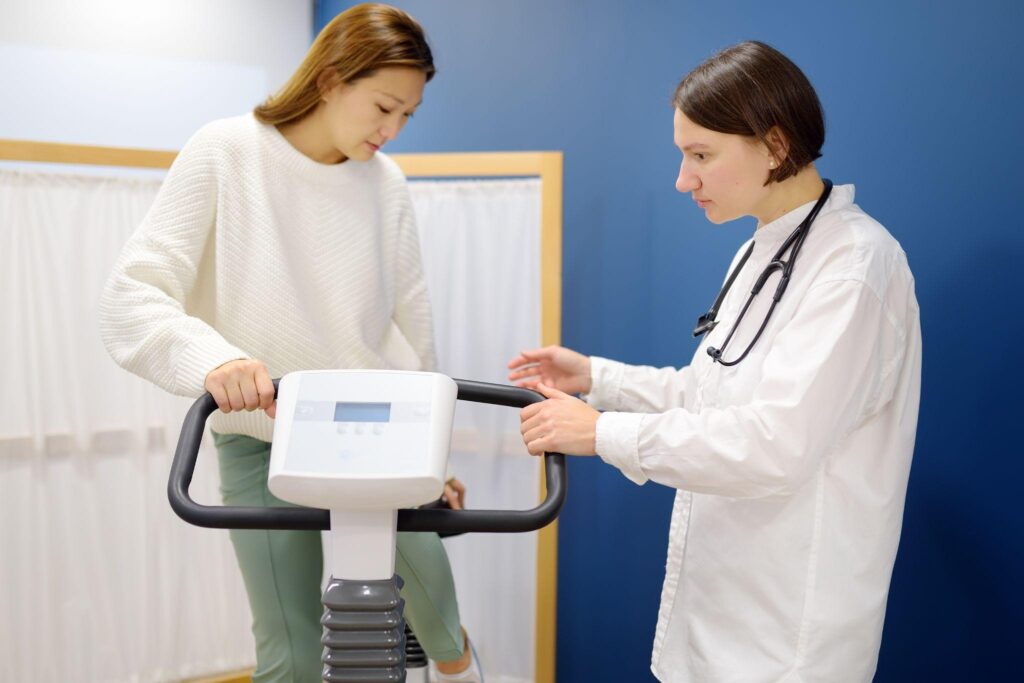How Does a Weight Loss Center Work? Everything You Need to Know Before Choosing One

You try a new diet. It works for a while until it doesn’t. The weight creeps back, and you’re stuck in the same cycle, frustrated and exhausted. Sound familiar?
Up to 95% of people regain lost weight because most diets ignore the real problem: metabolism, hormones, and long-term sustainability. That’s where a weight loss center comes in. These programs don’t just focus on cutting calories.
They reset your body to burn fat efficiently, so you lose weight and actually keep it off. But how does a weight loss center work? And more importantly, how do you find the right one? Let’s break it down.
How Does a Weight Loss Center Work? (What to Expect in 3 Simple Steps)
The real reason weight loss feels impossible isn’t lack of willpower but most programs ignore how your metabolism, hormones, and body chemistry work together. That’s where a weight loss center comes in.
Instead of a one-size-fits-all diet, these programs focus on resetting your body so it naturally burns fat, keeps energy levels high, and stops fighting against weight loss.
Here’s exactly what you can expect when you walk into a weight loss center and how it can help you finally see results.
1. A Deep Dive Into Your Metabolism (No More Guesswork)
Ever feel like your body holds onto weight no matter what you do? That’s because metabolism isn’t just about calories but how efficiently your body burns fat, processes food, and regulates hormones.
A weight loss center starts by identifying what’s actually slowing your progress:
- Metabolic testing pinpoints whether a slow metabolism, hormonal imbalance, or inflammation is blocking weight loss.
- Body composition analysis goes beyond the scale to measure fat percentage, muscle mass, and water retention—because weight alone doesn’t tell the full story.
- Lifestyle and medical history review uncovers patterns that might be sabotaging results, like stress, gut health issues, poor sleep, or past diet failures.
By the end of this step, you’ll know exactly what’s been keeping the weight on and more importantly what will actually work to get it off.
2. A Customized Plan Built for You (No Cookie-Cutter Diets)
Once your metabolism is mapped out, the next step is creating a personalized weight loss plan that works with your body instead of against it.
Unlike restrictive diets that leave you hungry and drained, this plan is designed to balance hormones, improve metabolism, and reduce fat storage naturally.
Here’s what a weight loss center may include in your program:
- Targeted nutrition guidance focused on real food—no meal replacements, starvation, or extreme calorie counting.
- Metabolism-boosting nutraceuticals (if needed) to support fat burning, energy levels, and hunger control—without artificial stimulants or hormone injections.
- Personalized coaching & accountability so you always know what to do next and never feel lost or alone in the process.
This isn’t a short-term fix. It’s a sustainable plan that helps you lose weight without feeling miserable, hangry, or deprived.
Tracking what you eat can also be a game-changer in your weight loss journey—learn why in The Importance of Tracking Your Food Intake for Weight Loss.
3. Ongoing Support to Keep the Weight Off (Because That’s the Hard Part)
Let’s be real, losing weight is one thing, but keeping it off? That’s where most people struggle.
That’s why the best weight loss centers don’t just focus on the losing part. They teach you how to maintain results for life.
Here’s how they help you avoid regaining the weight:
- Regular check-ins & progress tracking to adjust your plan as your body changes.
- Education on long-term habits so you know exactly how to eat, move, and live without constantly worrying about weight.
- Supportive coaching & motivation because life happens, and having guidance makes all the difference.
This is what separates a weight loss center from crash diets. Instead of leaving you to figure things out alone, they provide the tools and knowledge to permanently help you stay in control of your results.
Having an accountability partner can also make a huge difference—discover how in The Power of Accountability Partners in Your New Year Fitness Journey.
So, Is a Weight Loss Center Right for You?
Now that you know how a weight loss center works, the next step is deciding if it’s the right fit for you. How do you choose the best weight loss center near you? What should you look for? And how do you make sure you’re not signing up for another short-term fix?
Let’s break that down next..
How to Choose the Right Weight Loss Center
Not all weight loss centers are created equal. Some focus on quick fixes, while others help you lose weight for good. Here’s how to find the right one.
1. Science-Backed, Metabolism-First Approach
A quality weight loss center identifies the root cause of weight gain—slow metabolism, hormonal imbalances, or inflammation rather than just cutting calories. Look for:
- Personalized metabolic testing to tailor the program to your body.
- No extreme restrictions or generic diet plans.
- Long-term strategies to prevent weight regain.
Red flag: Any program promising rapid results with no plan for maintenance.
2. Proven Results and Real Client Success Stories
A reputable center should have clear evidence of success. Ask:
- Do they share real testimonials and before-and-after results?
- Are clients keeping the weight off long-term?
- Is ongoing support included after reaching the goal?
Red flag: Lack of real success stories or unrealistic promises like “Lose 50 pounds in a month.”
3. Personalized, Sustainable, and Transparent Programs
Your program should fit your lifestyle, budget, and long-term goals without hidden fees or unnecessary supplements. Look for:
- Flexible options (in-person or virtual).
- One-on-one coaching for accountability.
- Transparent pricing with no surprise costs.
Red flag: High-pressure sales tactics, required supplements, or vague program details.
Ready to Lose Weight Without the Struggle?
If diets have failed you, it’s not your fault. Most programs don’t address what’s actually keeping the weight on, your metabolism, hormones, and body chemistry. That’s why a structured, science-backed approach works when nothing else does.
At Wilmington Weight Loss, we help you reset your metabolism so your body burns fat naturally without starving yourself or spending hours in the gym. Our clients lose weight, keep it off, and feel better than they have in years.
The first step? A free consultation. No pressure, no gimmicks just real answers about what’s been holding you back and how we can help.
Book your free consultation today and take control of your weight for good.
Schedule a Free Consultation
Contact us today to schedule a free consultation with a weight loss expert!

